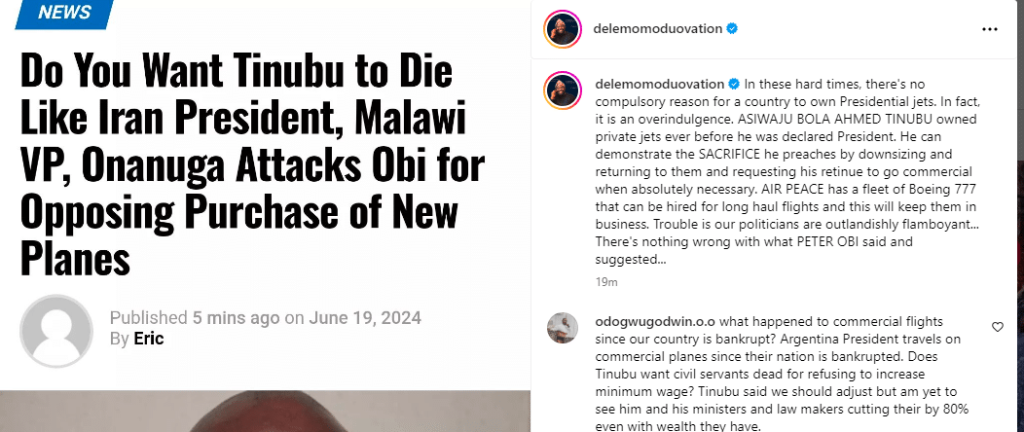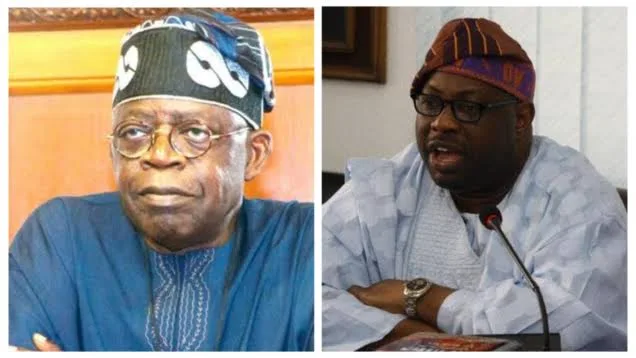Dele Momodu, a prominent chieftain of the Peoples Democratic Party (PDP), has criticized Bayo Onanuga, the Special Adviser to President Bola Tinubu on Information and Strategy, for his reaction to Peter Obi’s comments on the Federal Government’s plan to acquire new presidential jets.
Peter Obi, the Labour Party (LP) presidential candidate and former Governor of Anambra State, had condemned the move to buy new aircraft for the presidential fleet amidst the country’s economic difficulties, describing it as insensitive.
In response, Onanuga labeled Obi’s comments as insensitive, questioning whether Obi would prefer to jeopardize the President’s safety by using faulty aircraft.
Dele Momodu supported Obi’s statement, emphasizing that acquiring new presidential jets is unnecessary during such challenging economic times. He pointed out that President Tinubu, who owned private jets before assuming office, should lead by example and demonstrate the sacrifice he has been advocating.
Momodu suggested that Tinubu could use his private jets and request his officials to travel commercially when needed. He also mentioned that Nigerian airline Air Peace has a fleet of Boeing 777 aircraft available for hire, which would help keep the airline in business and reduce government spending on luxury.
“In these hard times, there’s no compulsory reason for a country to own Presidential jets. In fact, it is an overindulgence. ASIWAJU BOLA AHMED TINUBU owned private jets ever before he was declared President. He can demonstrate the SACRIFICE he preaches by downsizing and returning to them and requesting his retinue to go commercial when absolutely necessary. AIR PEACE has a fleet of Boeing 777 that can be hired for long haul flights and this will keep them in business. Trouble is our politicians are outlandishly flamboyant… There’s nothing wrong with what PETER OBI said and suggested…,” Momodu stated on his social media page.
This exchange highlights the ongoing debate over government spending priorities and the need for fiscal responsibility during economic hardships.

